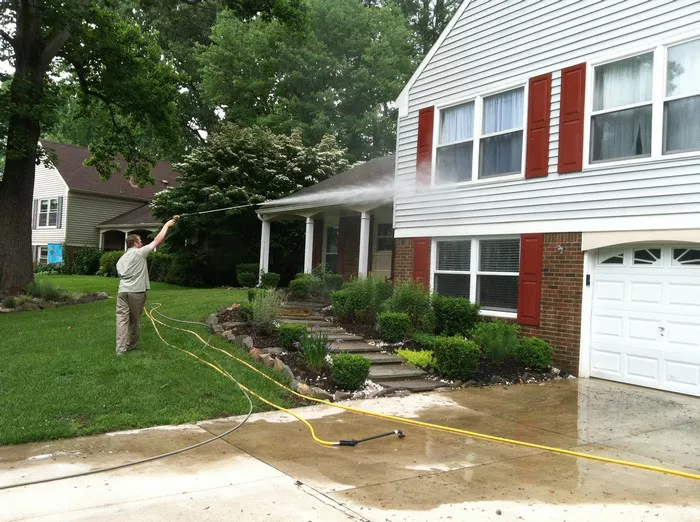Pressure washers are invaluable tools for cleaning various surfaces efficiently and effectively. Whether you’re tackling stubborn grime on driveways, decks, or vehicles, pressure washers offer immense power to get the job done. However, as with any tool, it’s essential to understand their water consumption to optimize usage and minimize waste. In this guide, we’ll delve into the factors affecting water usage in pressure washers, compare it to traditional methods, and provide tips for efficient usage.
Factors Affecting Water Consumption
Several factors influence the water consumption of a pressure washer:
1. Pressure Rating: Pressure washers are available in different pressure ratings, typically measured in pounds per square inch (PSI). Higher PSI ratings generally result in higher water flow rates, thus affecting water consumption.
2. Flow Rate: The flow rate, measured in gallons per minute (GPM), indicates how much water the pressure washer uses during operation. Higher flow rates mean more water consumption.
3. Nozzle Selection: The nozzle you use can significantly impact water usage. Different nozzles produce varying spray patterns and pressures, affecting the efficiency of water delivery.
4. Cleaning Task: The type and intensity of the cleaning task also influence water consumption. Tougher stains may require higher pressure and more water to remove effectively.
5. Duration of Use: How long you run the pressure washer also affects water usage. Prolonged usage results in more water consumption.
Comparison with Traditional Methods
One of the significant advantages of pressure washers is their efficiency in water usage compared to traditional methods like garden hoses. While a typical garden hose might use around 24 gallons of water per minute, pressure washers are significantly more conservative, typically ranging from 2 to 4 gallons per minute. This stark contrast highlights the effectiveness of pressure washers in minimizing water waste while achieving excellent cleaning results.
Tips for Efficient Water Usage
To make the most of your pressure washer while conserving water, consider the following tips:
1. Choose the Right Pressure Washer: Select a pressure washer with an appropriate PSI and GPM rating for your cleaning needs. Opting for a model with adjustable settings allows you to tailor water usage to specific tasks.
2. Use Proper Nozzles: Utilize the correct nozzle for each cleaning job to optimize water delivery and pressure. Switching to a narrower nozzle for tougher stains can reduce water consumption while enhancing cleaning power.
3. Pre-treat Stubborn Stains: Pre-soaking or pre-treating stubborn stains with appropriate cleaning solutions can help loosen grime, reducing the need for excessive water pressure and consumption during the cleaning process.
4. Avoid Excessive Run Time: Minimize idle time and only run the pressure washer when actively cleaning to prevent unnecessary water wastage.
5. Regular Maintenance: Keep your pressure washer well-maintained to ensure optimal performance and efficiency. Check for leaks, clean filters, and replace worn-out components as needed to prevent water loss.
By implementing these strategies, you can maximize the effectiveness of your pressure washer while minimizing water consumption and environmental impact.
FAQs
Q1. How does the pressure rating affect water consumption in a pressure washer?
A1: The pressure rating of a pressure washer, typically measured in PSI, determines the force with which water is expelled. Higher PSI ratings often result in higher water flow rates, leading to increased water consumption. However, it’s essential to balance pressure requirements with efficiency to avoid unnecessary water waste.
Q2. Can nozzle selection impact water usage in a pressure washer?
A2: Yes, the choice of nozzle significantly influences water consumption. Different nozzles produce varying spray patterns and pressures, affecting the efficiency of water delivery. Using the appropriate nozzle for each cleaning task can help optimize water usage and enhance cleaning effectiveness.
Q3. What are some practical tips for conserving water when using a pressure washer?
A3: To conserve water while using a pressure washer, consider choosing a model with adjustable settings to tailor water usage to specific tasks. Additionally, using proper nozzles, pre-treating stains, minimizing idle time, and performing regular maintenance can all contribute to efficient water usage and reduced environmental impact.
In conclusion, understanding water consumption in pressure washers is crucial for optimizing their usage and minimizing waste. By considering factors such as pressure rating, flow rate, nozzle selection, cleaning tasks, and duration of use, users can make informed decisions to conserve water while achieving excellent cleaning results. Compared to traditional methods like garden hoses, pressure washers offer significant advantages in water efficiency, typically using only 2 to 4 gallons per minute versus 24 gallons per minute for garden hoses. By following practical tips for efficient water usage and implementing proper maintenance practices, users can maximize the effectiveness of pressure washers while reducing environmental impact. Ultimately, responsible usage of pressure washers not only saves water but also contributes to cleaner and healthier surroundings.

